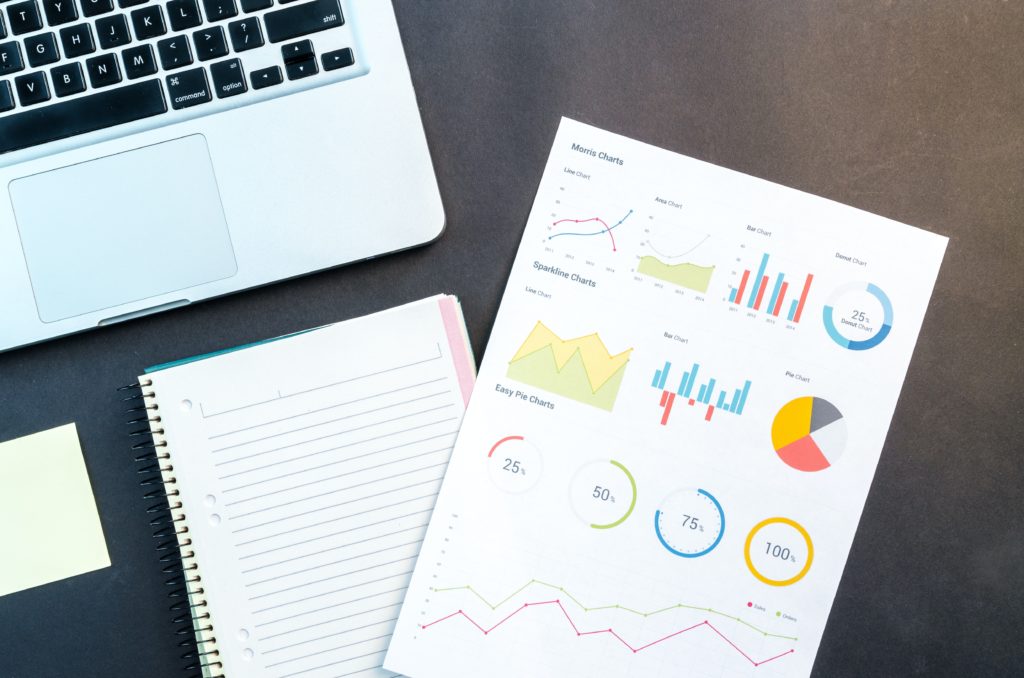This article contains a summary of the difference between reporting and analytics. Read on to find out more!
Over the years, these two words have been used interchangeably to mean the same thing, which can be very confusing. Well, nobody is to be blamed for that, just like the tomayto – tomahto concept, or is it potayto – potahto?
What Is Reporting And What Is Data Analysis?
In a nutshell,
Data reporting is the process of compiling data into informative summaries in order to monitor how various aspects of an organization are performing. In simple form, reporting converts collected data into information.
Data analysis is the process of exploring data and reports to extract meaningful insights that can be used to better understand and improve business performance. It is a systematic process of logically evaluating data in a report and interpreting it to establish a fact.
Reporting and analysis are interdependent, notwithstanding their differences. Reporting helps you figure out what questions to ask, and analysis tries to answer them.
In data analytics, various data analytics tools are being used to store and analyze this data. This process often does not happen in real-time, because the data being reported has to be studied, analyzed, and reported back to the stakeholders.
The stakeholders use this insight to make better decisions about their business. The process of reporting and analytics in business can also be called Business Intelligence.
For businesses to be ahead of the competition, they need to know how to control and make sense of the amount of data they collect daily.
This can help them to
- improve processes
- identify opportunities and trends
- launch new products
- serve customers
- make better decisions
Understanding data reporting and analytics is important because every business needs both. With reporting, you get to monitor the real-time progress of your business. With data analytics, you can use all the reported data to make decisions to improve your business.
Analytics and reporting are commonly e-commerce tracking. Data analytics and reporting are used to enhance eCommerce. Parselytics can achieve both simultaneously using an advance software. With reporting and analytics, eCommerce stores can track the number of people on their site in real-time. Parselytics can also use sales data to know what sold the most, and what did not sell. They can also use this data to find the reasons behind it.
The Difference Between Them
Related as reporting and data analytics may be, there is a distinct line between the two. Although reporting claims to provide data, which cannot be disputed, it can also leave more unanswered questions, hence, data analysis.
Reporting provides information while analysis critically evaluates the information at an in-depth level to answer questions asked by the interpreted data.
A practical example is a manufacturer who wants the details of large-scale suppliers and the number of sales made per year (a report). When he goes through the information and makes a comparison (analysis) he may or may not increase his product (insight).
Which Is Preferable?
Both reporting and data analytics go hand-in-hand. You cannot analyze without a report and you cannot have a report without analyzing the data.
Benefits of Reporting and Analysis
This process measures progress. It influences professional decisions. It also informs organizations where to spend time and resources to move the business forward. Reporting points out the strength of a business and where it is lacking. It optimizes the managerial system and helps in setting new goals for the business.
Knowledge is power
You can get data from different sources, but what is its usefulness if it cannot be interpreted? When a report is correctly analyzed, it gives the company an edge over others.
It provides room for innovation
After analyzing your report, we have already established that analysis begat information. This information can be acted upon to create room for improvement. Think of it as a map guiding your next strategic move.
It deals with evidence, not intuition
The information gotten from data analysis is hard facts and can be trusted. With it, you do not need to rely on guessing or trial and error. You already have.
Final Thoughts
Whether reporting or data analysis, you need both, just one is not more important than the other. While reporting helps turn data into facts, data analysis on the other hand sheds more light on the facts.
Need help with reporting and data analysis? Parselytics is your best bet. Click here!




